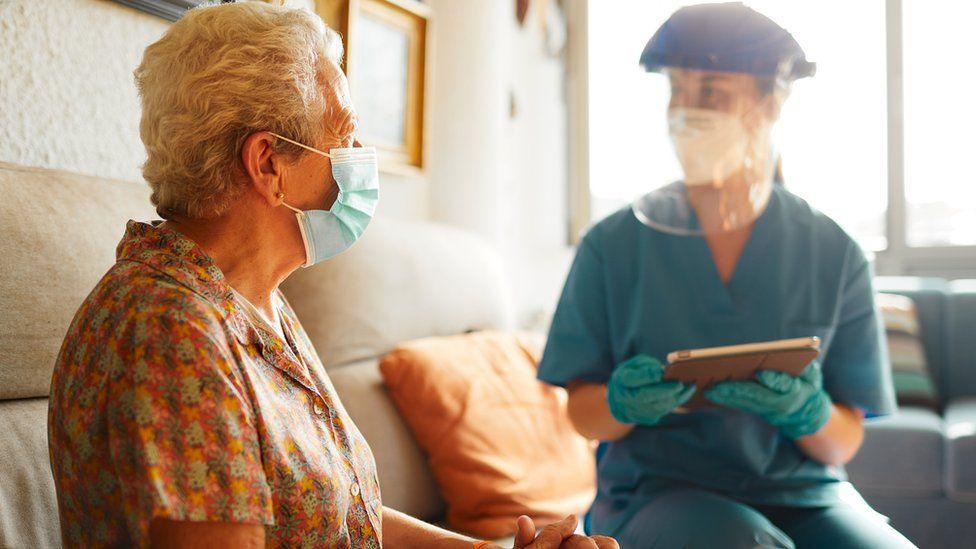Covid like 'pressing the rest button' on body
- Published
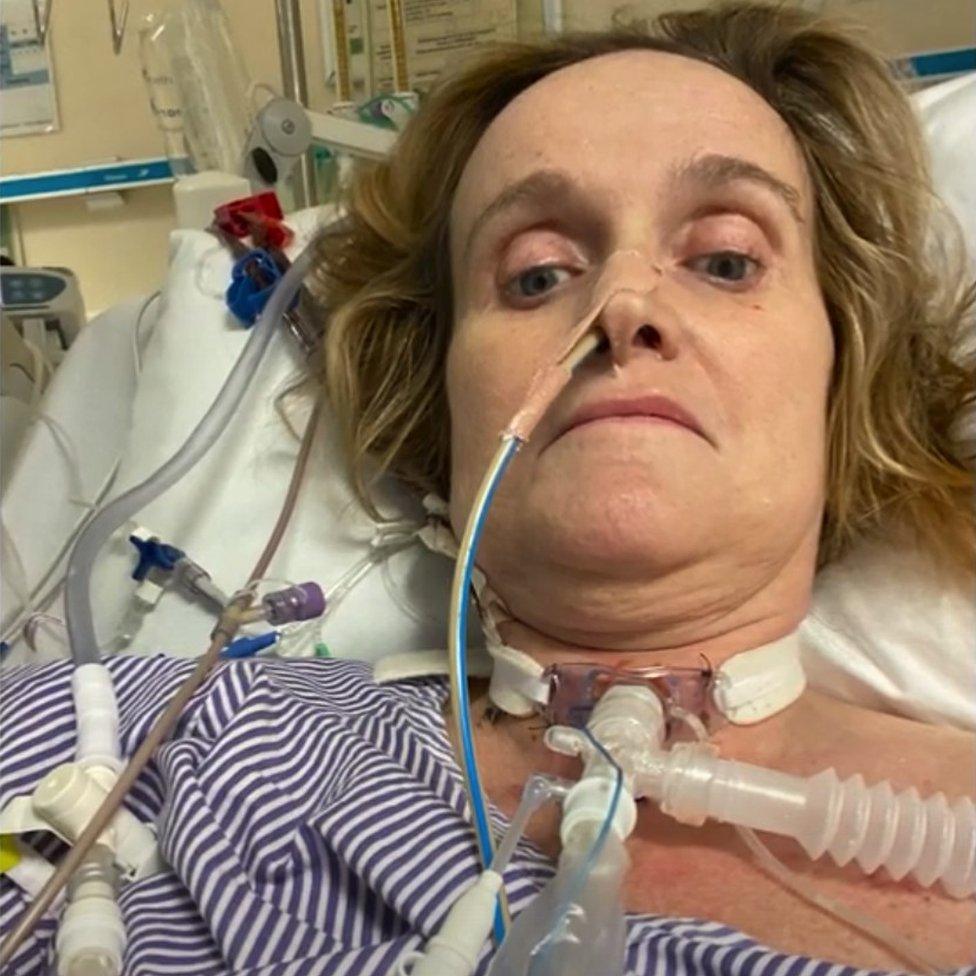
Caroline Jones said she was hours from passing away on three occasions
A woman who was close to death when she became gravely ill with Covid-19 has spoken about how the virus was like "pressing the rest button" on her body.
Caroline Jones was in intensive care in hospital in Bath for 33 days and said she owes "a debt of gratitude to the nurses and staff" for saving her life.
She said: "I tried not to be afraid, I tried to be strong, I tried to be determined to get out of hospital".
Nearly 200 Covid patients have been treated in Royal United Hospital's ICU.
Three of those patients have made a film talking about their experiences and how it has affected them.
Mrs Jones tested positive soon after Christmas and within two weeks the virus affected her liver, kidneys and legs and she had pancreatitis, pneumonia and sepsis.
She was admitted to intensive care on 6 January and was put in a coma for more than two weeks.
She told how she experienced "terrible hallucinations" like being buried alive in snow and was very confused when she woke up.
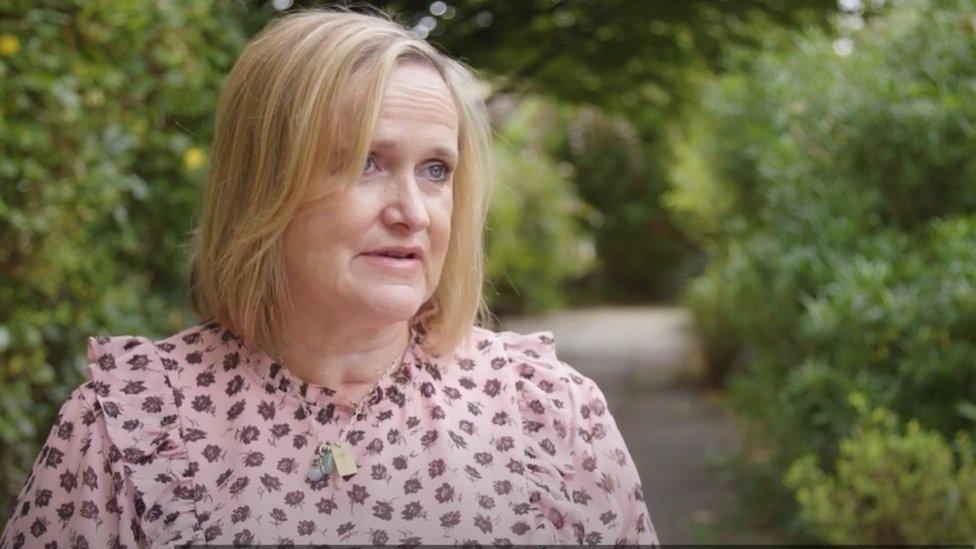
Mrs Jones says her recovery is "a slow process - it's not a sprint, it's a marathon"
Unable to see friends or family, she formed "tight bonds" with staff and said one nurse "sat with me and stroked my head, and it really [helped]... the small things go a long, long way when you're suffering".
She said: "It takes a long time to process what's happened and it takes the mind a while to readjust.
"You almost press the rest button on your nervous system because you've had such an overload of stress on... it's so traumatic."
'Precious gift'
Mrs Jones, from Bath, continued: "Stand out moments [are] that first step you take after being paralysed and that first stair you stand on.
"I see every moment now as a precious gift that I've been given because I could've died.
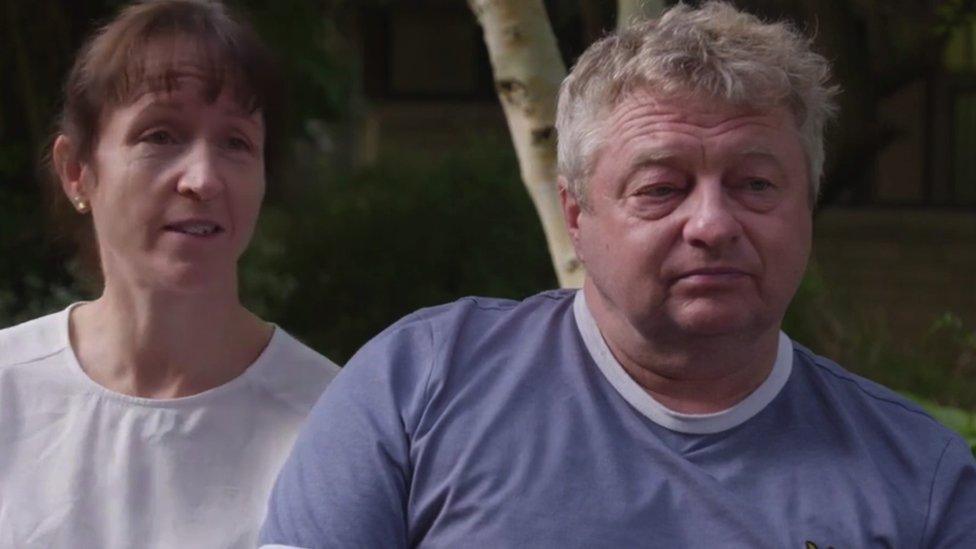
Gary Lloyd's wife Zoe wrote everything down because there was so much medical information to process
Gary Lloyd, from Keynsham, near Bristol, also took part in the video.
He fell ill at home at the end of March and said: "I remember going in the ambulance, being taken out on a stretcher from our house and… coming into the RUH. Twenty-four hours later I was put into a coma."
Mr Lloyd developed kidney failure, blood clots, bowel failure, sepsis and said although he doesn't remember anything, "Zoe [his wife] was living it".
Mrs Lloyd said: "We had to make that horrible phone call to him, being told it may be the last time we speak to him because it was very likely that he wasn't going to make it."
Moving stories
Mr Lloyd came out of his coma after around 42 days and said he "barely had function of a lot of my body".
The couple praised the staff saying "they did everything as best they could do".
Medical director at the RUH Bernie Marden said: "In the video our patients talk really movingly about what it was like to be so near death.
"Of course we don't want any of our patients and their loved ones to experience that, but that's the stark reality of Covid-19."

Follow BBC West on Facebook, external, Twitter, external and Instagram, external. Send your story ideas to: bristol@bbc.co.uk , external
Related topics
- Published18 November 2021
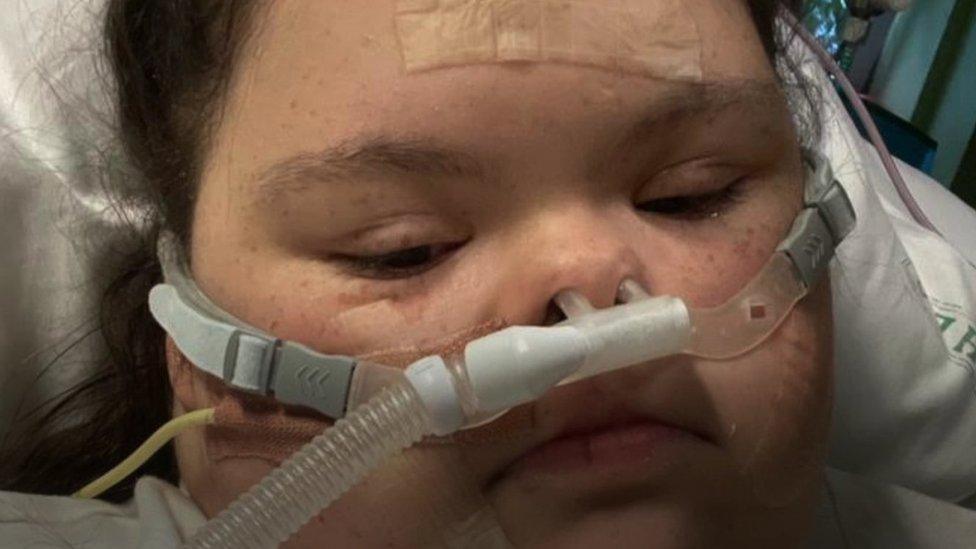
- Published11 November 2021
